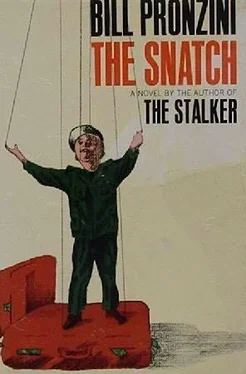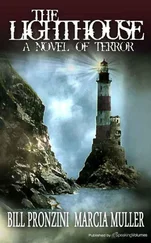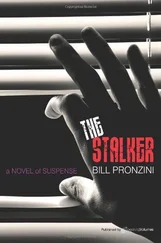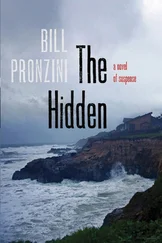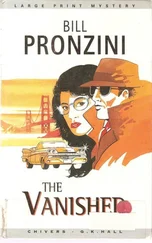Bill Pronzini - The Snatch
Здесь есть возможность читать онлайн «Bill Pronzini - The Snatch» весь текст электронной книги совершенно бесплатно (целиком полную версию без сокращений). В некоторых случаях можно слушать аудио, скачать через торрент в формате fb2 и присутствует краткое содержание. Год выпуска: 0100, Жанр: Криминальный детектив, на английском языке. Описание произведения, (предисловие) а так же отзывы посетителей доступны на портале библиотеки ЛибКат.
- Название:The Snatch
- Автор:
- Жанр:
- Год:0100
- ISBN:нет данных
- Рейтинг книги:4 / 5. Голосов: 1
-
Избранное:Добавить в избранное
- Отзывы:
-
Ваша оценка:
- 80
- 1
- 2
- 3
- 4
- 5
The Snatch: краткое содержание, описание и аннотация
Предлагаем к чтению аннотацию, описание, краткое содержание или предисловие (зависит от того, что написал сам автор книги «The Snatch»). Если вы не нашли необходимую информацию о книге — напишите в комментариях, мы постараемся отыскать её.
The Snatch — читать онлайн бесплатно полную книгу (весь текст) целиком
Ниже представлен текст книги, разбитый по страницам. Система сохранения места последней прочитанной страницы, позволяет с удобством читать онлайн бесплатно книгу «The Snatch», без необходимости каждый раз заново искать на чём Вы остановились. Поставьте закладку, и сможете в любой момент перейти на страницу, на которой закончили чтение.
Интервал:
Закладка:
I kept staring down at him, and the sight of his twisted features jarred my mind and suddenly I began thinking very clearly, very rationally, very rapidly. A lot of little things fused and grew and begat bigger things, and I began to tremble, standing there, tremble with more than mere coldness, the sound of the churning ocean growing and growing in my ears until it filled the room with crushing, cataclysmic noise. We had thought it all tied together, the kidnapping and the hijacking, but they were two separate entities, paralleling one another but never coming together until tonight. Now that I knew that, I knew also who had killed Art Shanley-who, and why, not all the answers, but enough of them, too many of them, and the knowledge made disgust flow through me with the palpable bitterness of camphor.
I turned away and let my eyes sweep the room, and there was a telephone on a black metal stand next to the bright-cushioned Danish couch. I went over and reached out for the receiver, and then I heard shuffling sounds from the darkness beyond the archway, strangely discernible above the deafening sea, and I realized that I had been a fool to come inside, a fool not to have considered the possibility that the killer was still on the premises, but it was too late now, too damned late, and when I pivoted he was there in the gloom beyond, with a gun held laxly in his right hand, a specter gaining substance as it moved into the light, stopping full-born and staring at me with the most terrible eyes I had ever seen-eyes that reflected all of man’s most hellish nightmares.
I stood facing a swindler, a murderer-and worse, perhaps much worse: a man so merciless, so cruel, that he had arranged the kidnapping of his own son.
I stood facing what was left of Louis Martinetti.
* * * *
20
The gun was a.32-caliber Smith and Wesson revolver, walnut-butted, with an almost nonexistent barrel- a belly gun that looked almost toylike in the largeness of Martinetti’s hand. He held it half-turned, palm up at a forty-five-degree angle, and the bore of it pointed loosely at my lower body.
His face had the look of food mold in the dim light from the floor lamp, and his lips twitched and danced in a kind of macabre rhythm, like the muscle spasm of a dead man. The deep excavations were back beneath his cheekbones. But the eyes-oh Jesus, those eyes! — caught and held your own gaze, and even though you wanted to look away, look anywhere but into those diseased and frightening depths, you could not seem to do it. They were hypnotic, holding you mesmerized with all the horror they contained.
I stood rigidly, my arms pressed tight against my sides, and I looked into those eyes and, curiously, I was not afraid. I should have known fear, because there was fear all around me in that room and because I was facing a gun that had already killed one man tonight-and yet, it was absent from my mind. I felt only a great despondency at the knowledge of what man can become, and an anger, too, and a nauseous disgust. I felt very tired, and very cold. But that was all-truly, that was all.
Neither Martinetti nor I spoke for a long time, and the thundering roar of the vast ocean swirled around us, reverberating, swelling the air in that room and swelling it until it seemed as if the pressure of the noise would burst the walls. And then it became no louder, as if waiting, as if maintaining that pitch like a great clarinetist would maintain the screaming high notes of Jelly Roll Morton’s “Iceburg Blues,” the power of it awesome and frightening but not as frightening as Martinetti’s eyes.
I said the words that were thick on my tongue, “You son of a bitch.”
He released a prolonged, sighing, shuddering breath and raised his left hand and passed it over the loose wetness of his mouth. “Yes,” he said, and that single word was no more than a death rattle, all inflection abrogated by the consuming sound of the Pacific.
“What motivates you, Martinetti? What do you use for a conscience, for a soul? What are you, for God’s sake?”
Something, a ghastly presence, came and went on his face. “I don’t know,” he said with a kind of sick wonder. “I don’t know!”
“Your own son,” I said. “Your own flesh.”
“So simple in the beginning,” he said, “not so terrible … intelligent boy, Gary, no emotional scars …too stable, but it went wrong, there was no way it could go wrong, but it went wrong …”
I thought: Is this the actor worthy of an award, the coldly methodical mercenary, the bitterly vengeful cuckold? Is this the Louis Martinetti of chicanery and deceit and extra-legalities, of the forceful and magnetic personality-this shell, this decaying creature with the zombie eyes?
But I said, “It was the money, wasn’t it, Martinetti? The three hundred thousand dollars of Channing’s money. That’s why you did it.”
“The money,” he said, “oh yes, I had to have the money … the real estate investment closing up and no more assets, no place to turn-Jesus God, it meant millions and Channing was the only one with the kind of cash I needed … Channing, that bastard, that cold bastard, never loaned a cent in his life, never bet on a long shot and so proud of it-well, I gave him something to shake his pride, didn’t I? I gave him a kidnapping, I gave him a goddamn ultimatum-how would the newspapers like to know you refused to save a little boy’s life, Allan? You think about that, you bastard …”
He stopped talking and stood there motionless. I could feel the sweat on my own body, as motionless as his. It was as if we had been frozen, solidified, in the tableau of the room-a scene of horror cast in wax at Madame Tussaud’s. A half-minute passed and I got some saliva through the dry crust inside my mouth and I said, “Lockridge, Martinetti. What was your connection with Lockridge?”
“Lockridge,” he repeated, and he kept standing there, rigid, the gun not moving in his hand. I counted to six before he spoke again, the words like those on a recording tape being played for the millionth time, words which had lost all their human qualities and become the expressions of a machine. “He didn’t have a choice either, I told him that, I said not with your underworld connections there in Ohio-one word from me would have sent him to prison for a long time … oh no, I didn’t have to give him fifty thousand, but it was my safety margin, all planned so carefully …”
Yeah, I thought, you planned it all so carefully. You must have met Lockridge in Ohio, your wife is from there, and maybe you used him in some capacity on your schemes and deals over the years; it figures that way. So when you came up with the kidnapping idea, you brought him out here and briefed him on the situation and told him about the area in the San Bruno hills to be used as a drop point. You told him to treat Gary with kid gloves, to buy some of his favorite books and models so that the boy would be comfortable, and you gave him Gary’s exact clothing sizes, too, so that he wouldn’t have to keep wearing his school uniform. Then you wrote out that kidnap note yourself, on your personal stationery, and signed your name to it; that’s why the headmaster at Sandhurst never questioned the signature: it was authentic.
But you didn’t know where Lockridge was holding Gary. You weren’t acting after Lockridge was killed and I had been stabbed and the money hijacked. Maybe you were supposed to know where the boy was, maybe you thought you did know. You had to keep up the masquerade of waiting by the phone and so you couldn’t get away to check on the boy until the following afternoon, probably just before you came to see me in the hospital; sure, and maybe you planned to keep Gary from seeing you somehow and then drop some clue to Donleavy or me later on. But then, if I’m guessing right, you discovered that the boy was not where he was supposed to be and you panicked; you weren’t aware of the Hanlon girl-Lockridge had brought her in on his own, for his own reasons- and you thought Gary was alone, locked up somewhere, that he might starve to death if he wasn’t found. Lockridge had pulled a fast one on you, an irony you never expected, either because he wanted some insurance that you kept your part of the bargain you’d made with him, or because he intended to hold you up for a larger percentage of the money. It doesn’t matter now; it just doesn’t matter at all.
Читать дальшеИнтервал:
Закладка:
Похожие книги на «The Snatch»
Представляем Вашему вниманию похожие книги на «The Snatch» списком для выбора. Мы отобрали схожую по названию и смыслу литературу в надежде предоставить читателям больше вариантов отыскать новые, интересные, ещё непрочитанные произведения.
Обсуждение, отзывы о книге «The Snatch» и просто собственные мнения читателей. Оставьте ваши комментарии, напишите, что Вы думаете о произведении, его смысле или главных героях. Укажите что конкретно понравилось, а что нет, и почему Вы так считаете.
